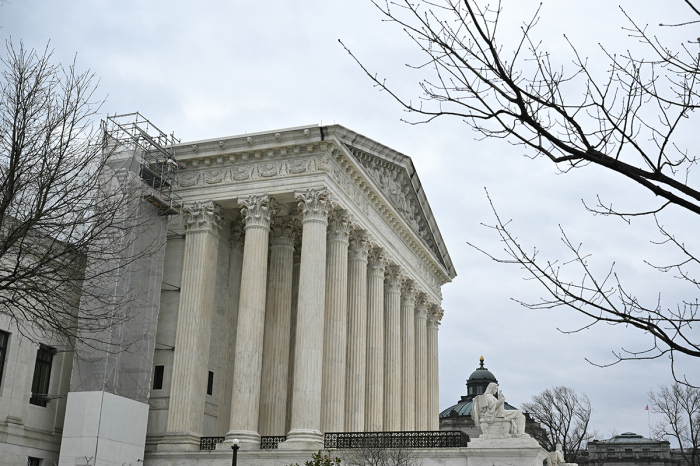
The United States Supreme Court appeared skeptical of Wisconsin state officials refusing to grant a religious exemption to a Catholic charity group because they think its work is too secular.
The high court heard oral arguments in the case of Catholic Charities Bureau, Inc. v. Wisconsin Labor Review Commission et al., which centered on whether a Christian charity group can be exempted from an unemployment insurance program even though its services were deemed nonreligious.
Colin Roth, a lawyer representing the state of Wisconsin, warned that allowing the Catholic Charities Bureau to gain the exemption even though its work is secular in nature would have unintended consequences.
“Exemption is limited to the employers most likely to draw the state into doctrinal disputes,” Roth said. “Petitioners’ motive-only test has no such limits.”
“It would leave, potentially, over 1 million employees nationwide without unemployment coverage, like nurses and janitors at religiously-affiliated hospitals, even though the state can virtually always determine their benefit eligibility without confronting religious doctrine.”
However, Justice Elena Kagan was critical of the state’s argument, stating, “I thought it was pretty fundamental that we don’t treat some religions better than other religions.”
Kagan asked Roth if Wisconsin could pass a law stating that, “we’ll give a religious tax exemption to religious groups that proselytize but to no others?”
When Roth said it was unlikely, Kagan replied, “I don’t understand why it’s not the exact same thing. I mean, the way this statute has been interpreted by the Wisconsin courts, it’s basically saying ‘we’re giving the tax exemption to religious organizations that proselytize, but not to religious organizations that don’t.’”
Justice Amy Coney Barrett pointed out that Judaism doesn’t have evangelism as a key part of its faith, asking Roth if that meant that Jewish nonprofits could never qualify for the exemption.
Roth clarified that proselytization is one of multiple possibilities to qualify for the exemption, with worship and religious education being two other options to consider a group exempted.
“A motive alone is not enough to qualify for this exemption,” he added. “Catholic Charities here relied entirely on their motive.”
Justice Neil Gorsuch interjected, arguing that “it has to come down to proselytization,” and asked what the difference was between a Christian charity that requires recipients to attend worship before getting a bowl of soup and one that says worship attendance is optional.
“Is Wisconsin going to go around and [say], ‘This soup kitchen, you have to go to the service before you get your soup, they’re good to go. But that one, they just invite you to the service after the soup, they’re bad,’” Gorsuch stated.
Catholic Charities Bureau is an umbrella organization comprised of multiple charitable groups within the Roman Catholic Diocese of Superior, which is based in Superior, Wisconsin.
In 2016, the Catholic Charities Bureau asked the Wisconsin Department of Workforce Development to exempt it from having to pay into the state unemployment insurance program because of its religious nature.
The Wisconsin Department of Workforce Development declined the request, arguing that Catholic Charities was not primarily religious in nature. The charity appealed to an administrative law judge, who reversed the earlier ruling.
The Wisconsin Department of Workforce Development petitioned the Wisconsin Labor and Industry Review Commission, which ruled against Catholic Charities, arguing that they did not qualify for a religious exemption.
In March of last year, the Wisconsin Supreme Court ruled 4-3 that Catholic Charities Bureau did not fit the definition of a religious entity and, because of this, was ineligible for the religious exemption.
Justice Ann Walsh Bradley authored the majority opinion, ruling that the charity was “not operated primarily for religious purposes” and must pay into the unemployment insurance program.
“CCB and the sub-entities, which are organized as separate corporations apart from the church itself, neither attempt to imbue program participants with the Catholic faith nor supply any religious materials to program participants or employees,” Bradley wrote. “An objective examination of the actual activities of CCB and the sub-entities reveals that their activities are secular in nature.”
In August, CCB filed a petition to the Supreme Court, which argued that being forced to pay into the program hindered the charity’s support for the poor and meant that “they cannot participate in their church’s own unemployment compensation system along with Wisconsin dioceses, including the Diocese of Superior itself.”
Last December, the Supreme Court issued a miscellaneous order agreeing to hear oral arguments in the case.















